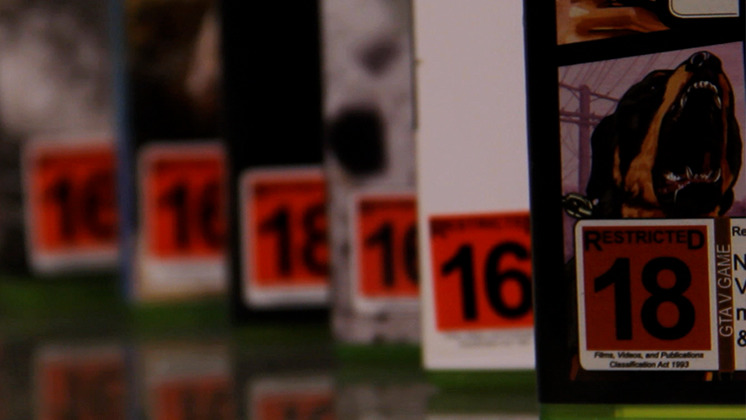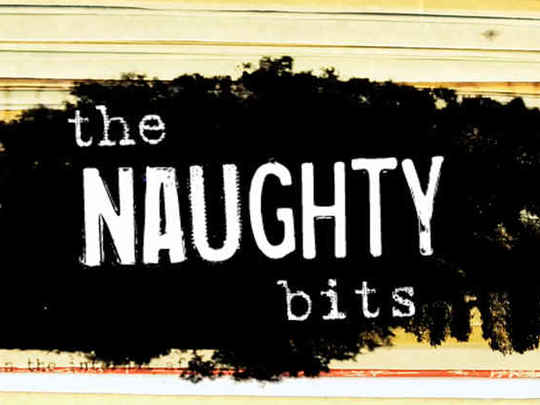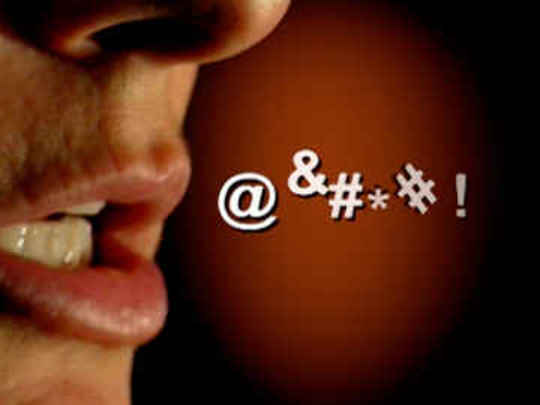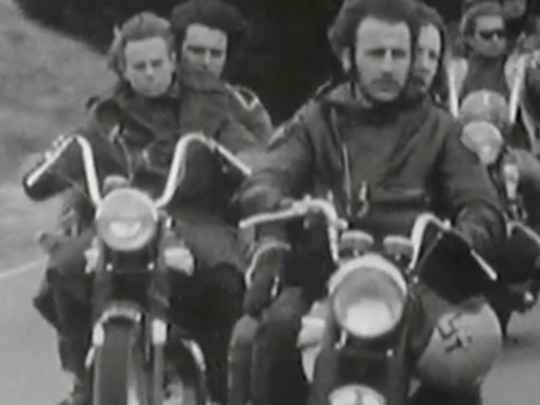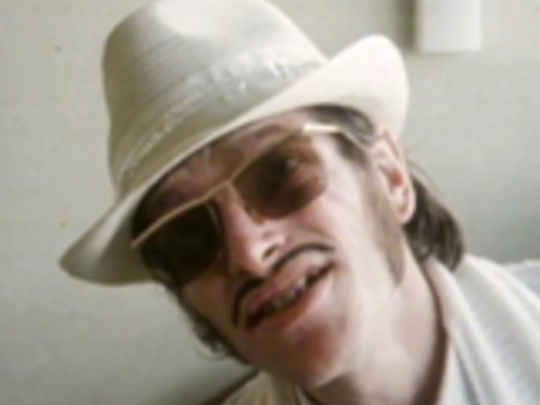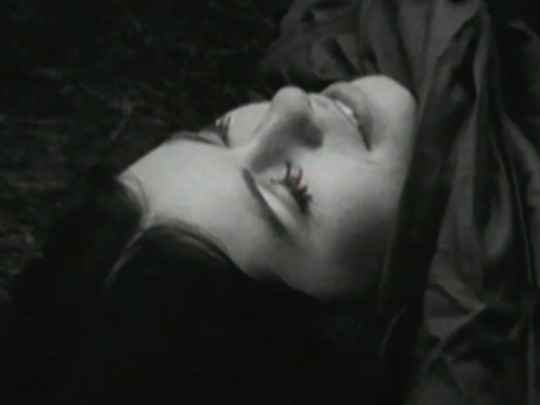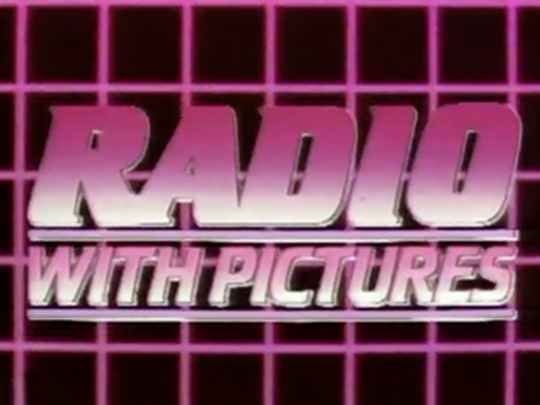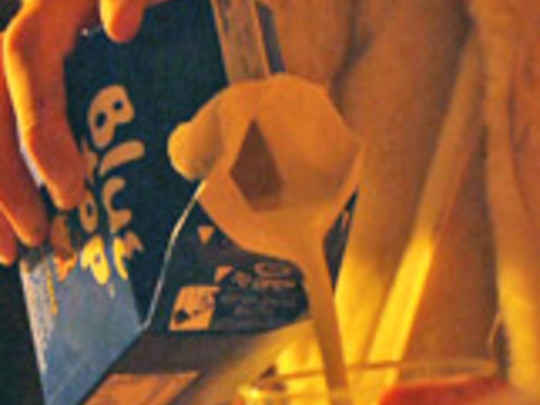Censorship makes one key assumption: what you hear and see can potentially have an impact on the way you behave.
– Narrator Ian Hughes, at the start of this episode
Violence has been one of the things New Zealand censors love to cut.
– Narrator Ian Hughes, at the start of this episode
[Nunchaku] are an illegal weapon in New Zealand. In Enter the Dragon for instance, they were very clever with the cuts they did to it: they chopped out all the nunchuck fighting.
– Censorship researcher Peter Hassall on cuts to martial arts movies, early in this episode
The moral panic over juvenile delinquency in the fifties and sixties meant reels of film were cut from movies ... what concerned those censors was mainly films containing violence and dangerous behaviour that could be imitated by New Zealand teenagers.
– Narrator Ian Hughes, early in this episode
[Oswald Mazengarb] and his committee placed the blame on naughty literature and violence in movies and comic books, particularly bloodthirsty wartime books from America.
– Narrator Ian Hughes summarises New Zealand's Mazengarb Inquiry into moral delinquency in children and adolescents, in 1954
I think that a lot of the big comic book publishing houses that were around during the 1940s in the boom of New Zealand comic publishing closed down after 1954, because so many of the titles which were the more commercial ones ended up being restricted.
– Comic historian Tim Bollinger on the many comics banned in 1950s New Zealand
Both discussed topics such as sex and drugs, both were aimed at teenagers, and both books caused massive controversy.
– Narrator Ian Hughes on 1970s books The Little Red Schoolbook and Down Under the Plum Trees
Public attitudes continually outpace censorship law, and as we'll see it doesn't take long for a censor's decision to appear outdated.
– Narrator Ian Hughes
If a book or a comic was judged to be indecent in 1975, well it's still considered to be indecent today unless someone resubmits it to be reclassified. So there's a whole lot of things that were banned then and they're still banned today.
– Cartoonist Dylan Horrocks
In the early forties the Chief Censor William von Keisenberg would remove the word 'moll' from films. Often he'd also erase the words 'bun' and 'stinker'. Likewise, film censor Douglas McIntosh in the sixties was infamous for slicing out every single 'f' word in a film.
– Narrator Ian Hughes on changing Kiwi approaches to censoring offensive language
As it turned out, the only person that was really offended by it was the sergeant. Nobody else had complained...
– Suburban Reptiles vocalist Clare Elliott on avoiding an obscene language charge after using the 'f' word on stage at the 1978 Riverhead Rock Festival
The office did give Maniac a classification, but restricted it from general release in movie theatres. You can only see the film if you're studying it, or if it's part of a film festival.
– Narrator Ian Hughes how 2013 movie Maniac was handled by the Office of Film and Literature Classification
The Maniac case shows how censorship can frustrate liberals just as much as conservatives. It also illustrates what some see as its
increasing irrelevance in the age of the instant download.
– Narrator Ian Hughes on 2013 movie Maniac, which some New Zealanders watched illegally online
